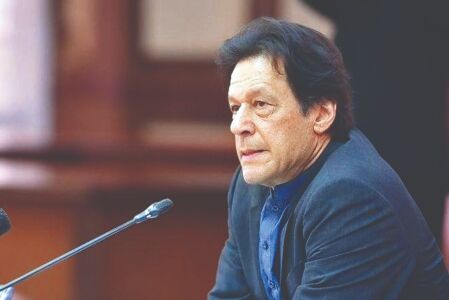Incorrigible?
Pakistan should learn from setbacks, quit bashing India and opt the path of growth

Pakistan's foreign policy mandarins and much-hyped diplomacy, both took a drubbing recently when the Sri Lankan government cancelled the well-publicized Parliament address in Colombo by Prime Minister Imran Khan, originally planned for February 24 during his Sri Lanka visit. Pre-empting Imran Khan from raking up Kashmir issue in a foreign legislative body is being seen as the most plausible reason for the last-minute cancellation. However, Sri Lanka on its part has ascribed reasons for such cancellation with COVID-19 threats. This argument has few takers.
In the meantime, another disturbing news for Pakistan has started arriving. Pakistan is unlikely to exit the Financial Action Task Force (FATF) 'grey' list until June this year, despite its efforts to gather support from the member nations ahead of the plenary meet of the FATF — slated to be held in Paris from February 21 to 26. This is yet another critical setback for Pakistan. It also means that Pakistan has not done enough to improve its track record on terror-funding despite repeated warnings by the FATF. If this early assessment made by the evaluators is found correct, it will be a slap on Pakistan's face, further dampening its already low spirits.
Seen as an incorrigible nation, however harsh it may sound, Pakistan doesn't seem to be learning any lessons and instead continues to bask on bashing India — most of such reactions emanating from a deep sense of insecurity from India. Let us dwell upon a couple of illustrations to prove our point. The Chief of the Army Staff, General Qamar Ahmad Bajwa, while addressing the cadets of the Air War College Institution (AWCI) at the 34th Air War course at Karachi, under the aegis of the Pakistan Air Force (PAF), warned (February 17) that Pakistan was ready to give a befitting reply to any misadventure posed by its adversary. The tenor and syntax were aggressive and reminiscent of his similar speech earlier this month, again at a PAF function. In both the cases, the Army Chief insinuated his warning towards India. It was indeed unprovoked and avoidable but the content robs away any chances of toning down the sense of hostility in letter and spirit.
Apart from the Army Chief, the Foreign Minister of Pakistan, Shah Mehmood Qureshi while addressing the participants of the ninth International Maritime Conference in Karachi on February 15, accused India of taking recourse to what he termed belligerent and aggressive policies raising the chances of conflict in the Indian Ocean. Crossing all limits of decency, Foreign Minister Qureshi also charged India for being driven by "extreme Hindutva ideology". Again, such remarks coming from a senior minister against a sovereign country were totally uncalled for. It is clearly evident that such manifestations are the result of a great sense of insecurity felt by Pakistan. This seems to have heightened, following the perceived armament built up by India, as assessed by the media house Al Jazeera. Its further analysis is that being in the Quadrilateral Security Dialogue group, Pakistan is apprehensive with security concerns. Though the well-known commentator and security analyst Zahid Hussain feels that India's military preparedness is against China, Pakistan feels threatened by India. Pakistan recently hosted a naval exercise with the US, the UK, Russia and itself as participants.
Meanwhile, there are saner elements within Pakistan who are rendering sound advice to the Imran Khan-led government but such tips are falling on the deaf ears. They are considered to be pacifists with no angst against India. A retired General, Talat Masood is one of them who comments with objectivity with a near clinical analysis. Very recently, he articulated his views that sustained economic growth, merged with economic integration within the country and with its friendly neighbours, is the surest path that will uplift Pakistan's contribution towards the well-being of its people and enhance its defence capabilities. Presently, Pakistan's over-dependence on the IMF, World Bank and other donor countries still has enough elbow room to improve the economy. The objective thinkers in Pakistan also reckon that Pakistan's geographic location is vital which has not been exploited to its full potential. The US support to Pakistan, as perceived by it, is a cause of concern. They recommend an urgent need to upgrade Pakistan's education system, devoting more time to health and education sectors. This, according to them, is likely to strengthen awareness, economy and natural productivity.
In a very visceral observation, Talat Masood says that the leaders of ruling PTI under Prime Minister Imran Khan, at pre-election campaign speeches, had promised so many things but now the Single National Curriculum (SNC) seems to be the Government's favourite. This, Imran's critics and general population, conceive as regressive thus diminishing any chances of promise. The new policy of making Arabic compulsory in the curriculum is enough proof that the country is unfortunately rudderless and if it continues to remain unheeded by being incorrigible, the future would indeed be bleak.
The writer is a retired IPS officer, a security analyst and a former National Security Advisor to the Prime Minister of Mauritius. Views expressed are personal



